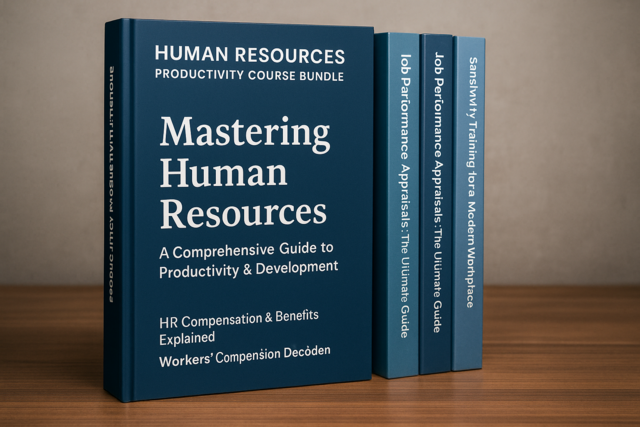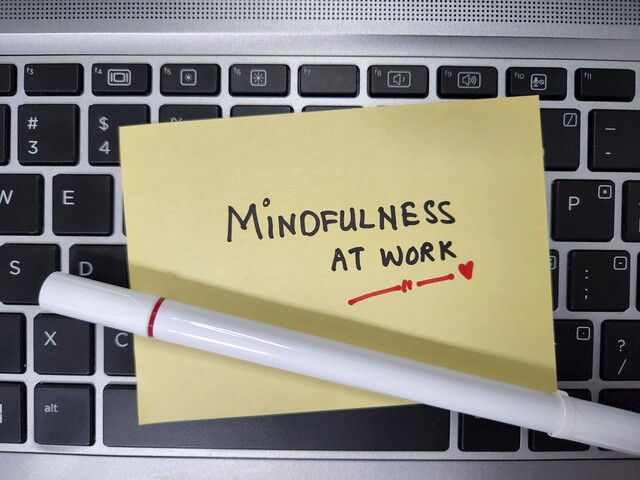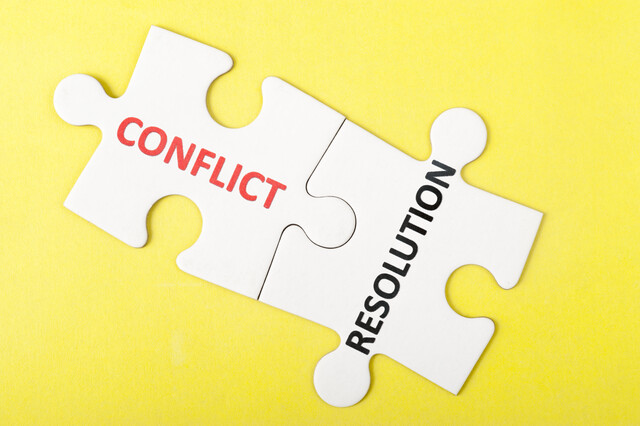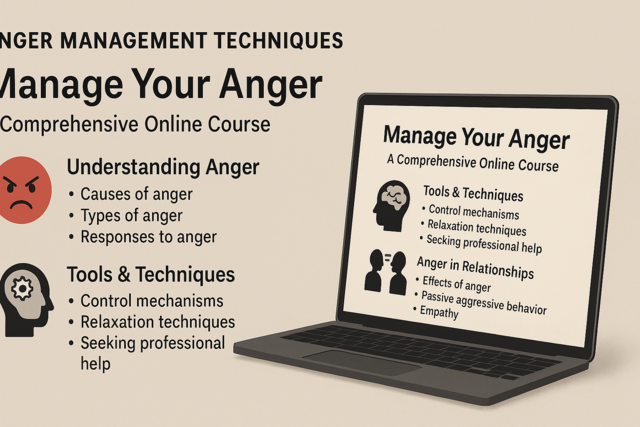Online Class: Mediation 101

no certificate
with CEU Certificate*
-
13Lessons
-
20Exams &
Assignments -
1,796Students
have taken this course -
11Hours
average time -
1.1CEUs
Course Description
Mastering Mediation: Your Path to Transforming Conflict into Opportunity
Conflict is inevitable in life, but how we handle it defines us. Imagine having the power to transform disagreements into mutual understanding, tension into resolution, and chaos into clarity. Mediation isn't just a skill; it's a gateway to fostering connection, collaboration, and lasting solutions. Whether you aspire to become a professional mediator or simply wish to navigate conflicts with confidence and empathy, this course will revolutionize the way you approach resolution.
Welcome to Mastering Mediation: A Comprehensive Guide to Conflict Resolution, the course designed to empower you with the tools, strategies, and mindset to resolve disputes with fairness and grace. This isn't just another online class-it's an invitation to embark on a transformative journey that can change lives, starting with your own.
Why This Course Matters
In today's fast-paced, interconnected world, the ability to mediate isn't just valuable-it's essential. Mediation is more than a process; it's a philosophy rooted in understanding, empathy, and trust. And yet, many people view conflict as something to avoid rather than an opportunity to grow. This course flips that perspective, showing you how to harness the power of dialogue and collaboration to create meaningful, lasting solutions.
You won't just learn about mediation-you'll live it. Through an engaging and practical approach, this course takes you deep into the heart of conflict resolution, equipping you with skills that are not only applicable but life-changing. Whether you're resolving workplace disputes, family disagreements, or high-stakes legal conflicts, you'll emerge with the confidence and competence to lead with clarity and compassion.
What Makes This Course Unique?
Unlike other courses that skim the surface, Mastering Mediation delves deeply into the art and science of mediation. This is not a lecture series-it's an experience. With real-world insights, relatable case studies, and step-by-step guidance, you'll learn not just the "how" but also the "why" of effective mediation. You'll uncover the hidden dynamics of conflict, master the art of active listening, and develop the ability to foster trust-even in the most challenging circumstances.
This course doesn't stop at teaching techniques. It transforms your perspective, equipping you to see conflict not as a threat, but as an opportunity to build bridges and foster growth. You'll gain the practical skills to mediate any situation and the personal insight to bring calm and resolution to even the most complex disputes.
The Benefits You'll Gain
By the end of this course, you won't just understand mediation-you'll embody it. Imagine the confidence of walking into any conflict and knowing you have the skills to guide all parties toward a fair, lasting resolution. Picture yourself becoming the person everyone turns to for clarity, fairness, and solutions. Whether you're seeking to advance your career, improve your relationships, or create a more harmonious community, this course will unlock doors you didn't even know existed.
Don't settle for conflict that divides-become the catalyst for resolution that unites. Enroll in Mastering Mediation today and take the first step toward a future where your ability to resolve conflict transforms lives, including your own. The world needs skilled mediators now more than ever. Are you ready to answer the call?
- Completely Online
- Self-Paced
- Printable Lessons
- Full HD Video

- 6 Months to Complete
- 24/7 Availability
- Start Anytime
- PC & Mac Compatible
- Android & iOS Friendly
- Accredited CEUs

Course Lessons
Lesson 1. The Gentle Art of Mediation: From Conflict to Cooperation
Mediation, a beacon of hope in conflict resolution, shifts disputes from adversarial court battles to collaborative discussions, promoting mutual respect and understanding. By prioritizing voluntary participation and confidentiality, it offers personalized solutions that traditional legal frameworks often overlook.Lesson 2. Beyond the Courtroom: When and Why to Choose Mediation
The benefits of mediation span improved communication, economic efficiency, timely resolutions, and enhanced compliance due to its cooperative nature. It also empowers individuals with decision-making flexibility, providing confidential, creative solutions in disputes where ongoing relationships matter.Lesson 3. Becoming a Bridge: Unveiling the Path of a Mediator
Mediators build trust with disputing parties, ensuring confidentiality and non-judgmental facilitation to enable open communication. The journey to becoming a skilled mediator involves ongoing education, volunteering, and shadowing seasoned professionals.Lesson 4. Navigating Conflict: An Introduction to Mediation
A comprehensive pre-mediation kit demystifies the process, covering costs, confidentiality, and the mediator's neutral role. Educating parties helps mitigate uncertainties and prepare them effectively.Lesson 5. Harmony in Conflict: The Role of Mediation
The role of a mediator is to act as a neutral facilitator who guides parties to an amicable resolution by educating them on processes and procedures. Building trust and a rapport with parties fosters cooperation and enhances dialogue by focusing on solutions rather than grievances.Lesson 6. Transforming Conversations Through Mediation
Mediation serves as a vital platform for disputing parties to express themselves and resolve conflicts through structured conversation. By understanding the open session and using tools like caucuses, mediators can guide participants towards uncovering common ground and achieving mutual resolutions.Lesson 7. Mediation Mastery: The Role of Brainstorming
Mediation's success hinges on facilitating cooperative brainstorming and evaluating solutions through objective criteria. This creates pathways to conflict resolution that respect all parties' interests while building a foundation for lasting relationships.Lesson 8. Creating Mediation Agreements: A Step-by-Step Exploration
Mediation agreements differ from conventional contracts by prioritizing accessibility and mutual understanding over legal jargon, fostering commitment to shared resolutions. This approach clarifies conflict points and ensures all parties’ perspectives and interim agreements contribute to the final draft’s comprehensiveness and adaptability.Lesson 9. Ensuring Lasting Harmony Post-Mediation
Post-mediation objectives ensure the longevity of resolutions by incorporating rigorous agreement review and collaboration with legal advisors. This process not only fortifies trust among parties but also introduces external endorsements, safeguarding against future challenges.Lesson 10. Why Mediation Needs Confidentiality
Serving as a key pillar in mediation, confidentiality builds trust and fosters candid discussions, enhancing the process's effectiveness. By safeguarding sensitive information, mediators help parties uncover creative and satisfying resolutions away from public courtrooms.Lesson 11. Empowering Conflict Resolution Through Mediation
By fostering effective communication and collaboration, mediation transforms adversarial disputes into opportunities for mutual understanding and growth. Mediators facilitate this process by ensuring a balanced negotiation environment where participants retain control over outcomes without sacrificing legal rights.Lesson 12. Navigating the Moral Landscape of Mediation: Ethics, Safety, and Conflict Resolution
Resources from organizations like the ABA and ACR, coupled with illustrative success stories, offer mediators insights into ethical challenges and solutions. These examples showcase how ethical practices and creative problem-solving facilitate transformative outcomes in various mediation contexts.Lesson 13. Stay Neutral, Stay Safe: Strategies for Mediators
Mitigating mediator liability involves comprehensive training, liability waivers, insurance, and clear communication to enhance professional standing and safeguard against legal issues. Staying informed about industry trends and ethical requirements strengthens a mediator's role and reliability.
Learning Outcomes
- Demonstrate the ability to identify situations where mediation is a suitable resolution method, ensuring voluntary participation and creative solutions are possible.
- Recognize the key differences between mediation and traditional legal proceedings, such as the emphasis on collaboration and confidentiality.
- Demonstrate the ability to evaluate the benefits and limitations of mediation in various conflict resolution contexts.#
- Identify scenarios where mediation is preferable to traditional litigation, such as preserving relationships and fostering innovative solutions.
- Define the key personality traits and ethical principles essential for effective mediation, including trustworthiness, humility, and a principled ethical approach.
- Demonstrate the ability to apply mediation skills, such as active listening, empathetic engagement, and logical reasoning, through real-life or simulated mediation scenarios.
- Demonstrate understanding of the mediator's role in fostering a structured yet flexible environment conducive to amicable conflict resolution.
- Identify and define the essential components of a pre-mediation information packet that ensure effective readiness for the mediation process.
- Demonstrate the ability to facilitate the transition from opening statements to mediation dialogue by setting an agenda and employing active listening techniques.
- Identify the key elements of an effective mediator's opening statement and describe how these elements contribute to creating a constructive atmosphere.
- Apply effective mediation techniques, including the use of caucuses, to navigate complex interpersonal conflicts, ensuring that all parties feel heard and respected.
- Identify and articulate the stages of an open session in mediation, demonstrating their role in facilitating dialogue and resolution between disputing parties.
- Demonstrate the ability to facilitate a structured brainstorming session, ensuring all participants contribute ideas and perspectives without judgment, as evidenced by a documented list of potential solutions.
- Demonstrate mastery of lesson content at levels of 70% or higher.
Additional Course Information

- Document Your Lifelong Learning Achievements
- Earn an Official Certificate Documenting Course Hours and CEUs
- Verify Your Certificate with a Unique Serial Number Online
- View and Share Your Certificate Online or Download/Print as PDF
- Display Your Certificate on Your Resume and Promote Your Achievements Using Social Media

Choose Your Subscription Plan
No Certificate / No CEUs
This course only
| Includes certificate | X |
| Includes CEUs | X |
| Self-paced |

|
| Instructor support |

|
| Time to complete | 6 months |
| No. of courses | 1 course |
Certificate & CEUs
This course only
| Includes certificate |

|
| Includes CEUs |

|
| Self-paced |

|
| Instructor support |

|
| Time to complete | 6 months |
| No. of courses | 1 course |
Certificates & CEUs
Includes all 600+ courses
| Includes certificate |

|
| Includes CEUs |

|
| Self-paced |

|
| Instructor support |

|
| Time to complete | 12 Months |
| No. of courses | 600+ |
Certificates & CEUs
Includes all 600+ courses
| Includes certificate |

|
| Includes CEUs |

|
| Self-paced |

|
| Instructor support |

|
| Time to complete | 24 Months |
| No. of courses | 600+ |
Student Testimonials
- "The instructor was quite knowledgeable and interesting to listen to." -- Patricia T.
- "The lessons were clear and easy to follow. Great course." -- Dean T.
- "It was a pleasure studying and talking with this instructor. She was very helpful when I had a question that had nothing to do with Mediation 101. I would definitely take more of her classes." -- Ruby R.
- "I can now go out and Mediate with confidence. Thank You!" -- Linda A.
- "This course was extremely helpful to me and answered all of my questions. I appreciated the prompt response of my instructor. I feel prepared to mediate conflict resolution sessions within my client organizations." -- Michele S.
- "I found the process of mediation very interesting. There were lots of things I didn't know about the mediation process that will be helpful to me. I enjoyed all the extra readings as well as the course material." -- Sheila G.
- "Happy with the course, thank you. It was an interesting course. I am looking for other courses to complete." -- Keith M.
- "I found all parts of this course helpful. Instructor really kept up with me, I worked this course quickly and she was very explicit, on her comments, which was very helpful in my learning experience. My goal was too make a career change and this course and the instructor were wonderful, and navigating the system was easy to figure out." -- Teresa C.
- "All of it was helpful. I thoroughly enjoyed this course!!" -- Mohammad H.
- "Enjoyed taking this course! The overall course content gave me the basic in-depth information I needed in order to consider becoming a Child/Family Mediator. I anticipate furthering my education in Mediation as a result of taking this course." -- Lynda M.
Related Courses
-
 25 hours
2.5 CEUs
Human Resources Productivity Course Bundle
+ More Info
25 hours
2.5 CEUs
Human Resources Productivity Course Bundle
+ More Info
-
 5 hours
0.5 CEUs
Team Building 101
+ More Info
5 hours
0.5 CEUs
Team Building 101
+ More Info
-
 7 hours
0.7 CEUs
Leadership Skills for Managers
+ More Info
7 hours
0.7 CEUs
Leadership Skills for Managers
+ More Info
-
 5 hours
0.5 CEUs
Creative Thinking Skills
+ More Info
5 hours
0.5 CEUs
Creative Thinking Skills
+ More Info
-
 7 hours
0.7 CEUs
Lean Management
+ More Info
7 hours
0.7 CEUs
Lean Management
+ More Info
-
 6 hours
0.6 CEUs
Confidence Building
+ More Info
6 hours
0.6 CEUs
Confidence Building
+ More Info
-
 9 hours
0.9 CEUs
Product Management 101
+ More Info
9 hours
0.9 CEUs
Product Management 101
+ More Info
-
 7 hours
0.7 CEUs
Workplace Sexual Harassment in the #MeToo Era
+ More Info
7 hours
0.7 CEUs
Workplace Sexual Harassment in the #MeToo Era
+ More Info
-
 4 hours
0.4 CEUs
Understanding Workers' Compensation
+ More Info
4 hours
0.4 CEUs
Understanding Workers' Compensation
+ More Info
-
 6 hours
0.6 CEUs
Persuasion Techniques
+ More Info
6 hours
0.6 CEUs
Persuasion Techniques
+ More Info
-
 9 hours
0.9 CEUs
Introduction to Six Sigma
+ More Info
9 hours
0.9 CEUs
Introduction to Six Sigma
+ More Info
-
 6 hours
0.6 CEUs
Goal Setting for Business
+ More Info
6 hours
0.6 CEUs
Goal Setting for Business
+ More Info
-
 3 hours
0.3 CEUs
Job Performance Appraisals - A How To Guide
+ More Info
3 hours
0.3 CEUs
Job Performance Appraisals - A How To Guide
+ More Info
-
 7 hours
0.7 CEUs
Healthy Relationships
+ More Info
7 hours
0.7 CEUs
Healthy Relationships
+ More Info
-
 16 hours
1.6 CEUs
Psychology 101
+ More Info
16 hours
1.6 CEUs
Psychology 101
+ More Info
-
 8 hours
0.8 CEUs
Human Resources Management
+ More Info
8 hours
0.8 CEUs
Human Resources Management
+ More Info
-
 8 hours
0.8 CEUs
Strategic Planning
+ More Info
8 hours
0.8 CEUs
Strategic Planning
+ More Info
-
 8 hours
0.8 CEUs
Procurement Management
+ More Info
8 hours
0.8 CEUs
Procurement Management
+ More Info
-
 8 hours
0.8 CEUs
Assertiveness Training
+ More Info
8 hours
0.8 CEUs
Assertiveness Training
+ More Info
-
 5 hours
0.5 CEUs
The Art of Setting Goals
+ More Info
5 hours
0.5 CEUs
The Art of Setting Goals
+ More Info
-
 8 hours
0.8 CEUs
Decision Making Skills
+ More Info
8 hours
0.8 CEUs
Decision Making Skills
+ More Info
-
 2 hours
0.2 CEUs
Mindfulness in the Workplace
+ More Info
2 hours
0.2 CEUs
Mindfulness in the Workplace
+ More Info
-
 6 hours
0.6 CEUs
Management Essentials
+ More Info
6 hours
0.6 CEUs
Management Essentials
+ More Info
-
 4 hours
0.4 CEUs
Resolving Workplace Conflict
+ More Info
4 hours
0.4 CEUs
Resolving Workplace Conflict
+ More Info
-
 5 hours
0.5 CEUs
Depression Management
+ More Info
5 hours
0.5 CEUs
Depression Management
+ More Info
-
 5 hours
0.5 CEUs
Critical Thinking Skills
+ More Info
5 hours
0.5 CEUs
Critical Thinking Skills
+ More Info
-
 5 hours
0.5 CEUs
Talent Management for Business
+ More Info
5 hours
0.5 CEUs
Talent Management for Business
+ More Info
-
 6 hours
0.6 CEUs
Introduction to Abnormal Psychology
+ More Info
6 hours
0.6 CEUs
Introduction to Abnormal Psychology
+ More Info
-
 8 hours
0.8 CEUs
Motivational and Public Speaking
+ More Info
8 hours
0.8 CEUs
Motivational and Public Speaking
+ More Info
-
 4 hours
0.4 CEUs
Stress Management
+ More Info
4 hours
0.4 CEUs
Stress Management
+ More Info
-
 7 hours
0.7 CEUs
Collaboration Skills
+ More Info
7 hours
0.7 CEUs
Collaboration Skills
+ More Info
-
 5 hours
0.5 CEUs
Emotional Intelligence
+ More Info
5 hours
0.5 CEUs
Emotional Intelligence
+ More Info
-
 8 hours
0.8 CEUs
Spiritual Counseling
+ More Info
8 hours
0.8 CEUs
Spiritual Counseling
+ More Info
-
 5 hours
0.5 CEUs
Recruitment and Retention Strategies
+ More Info
5 hours
0.5 CEUs
Recruitment and Retention Strategies
+ More Info
-
 7 hours
0.7 CEUs
Management Consultant 101
+ More Info
7 hours
0.7 CEUs
Management Consultant 101
+ More Info






